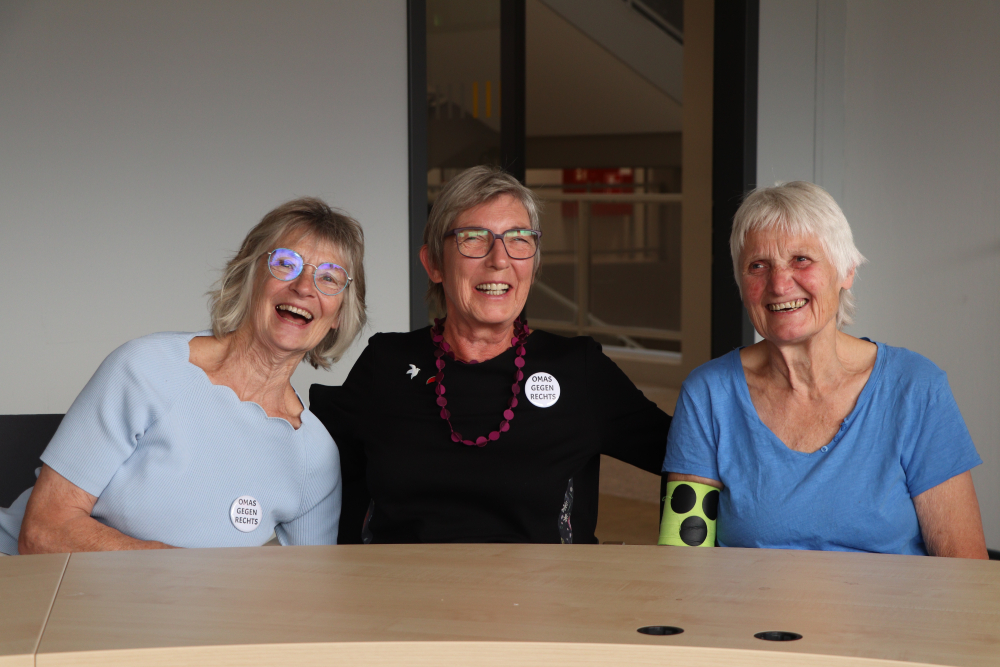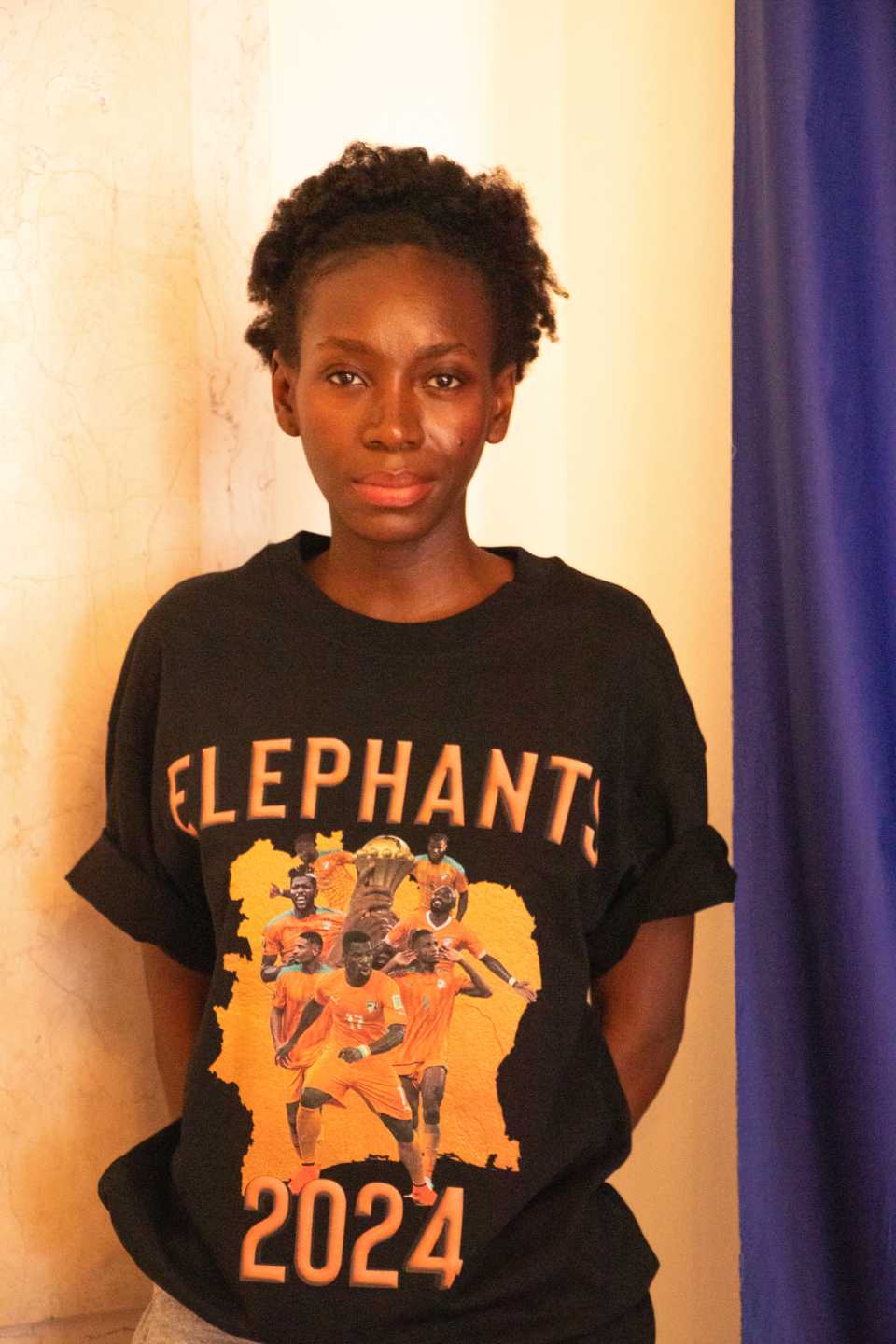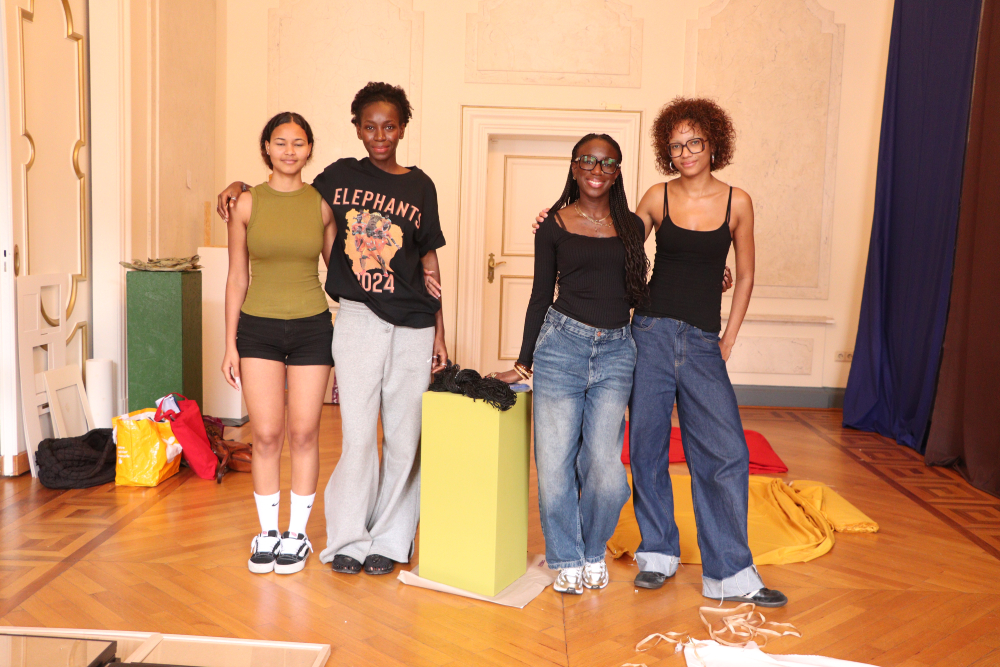Feminism and Far Right : Long term relationship or bad one-night stand ?
.jpg)
Right-wing groups talk about feminism. They often proclaim to be the first bulwark of feminism. But when coming to their values and their political agenda, they might have a specific definition of feminism. Are far right parties proceeding to a political reappropriation of feminist concepts, or are they genuinely tackling feminist issues ? For feminist groups in Mainz, Germany, the answer is clear.
The far-right Alternative for Germany (AfD) has become the most popular party in the country, polling at 26%, according to a striking new survey published Tuesday. The AfD’s gender policy centers on the “traditional family” understood as the heterosexual married couple with biological children and a gendered division of labor which the party calls its “guiding principle.” AfD is a nationalist party that defines the German nation in racialist terms, promoting a form of ethnic nationalism prominent in Central Europe before the end of World War II and the fall of Nazi Germany in 1945. However, they often use feminist issues to gain a broader audience as Nicole Höchst of the AfD often uses feminism as a way to attack religion and convey hateful speeches. She said : « The AfD calls for a ban on full veiling in public places. It is about protecting the individual freedom rights of Muslim women against peer pressure and intimidation in parallel societies. It is about the preservation of the values of our society, which cannot tolerate the optical redaction (Unkenntlichmachung) of the person. This erasure of the face is the symbol of the suppression of female self-determination, it is gender-specific discrimination par excellence. » But besides this « liberating speech », they might advocate for a further imprisonment of women’s bodies.
While Germany officially allows abortion under certain conditions, the persistent obstacles reveal a gap between formal legal rights and lived realities. This highlights the ongoing struggle for true progress in women’s rights and feminism in the face of conservative backlash. In a broader context, the AfD has consistently advocated for stricter abortion laws. Their platform emphasizes that abortion should be an absolute exception, permissible only in cases such as rape or serious health risks to the mother. They oppose any attempts to normalize or promote abortion, viewing it as a violation of the unborn child's right to life. The party has also criticized the 2022 repeal of Advertising for abortion, which previously prohibited advertising for abortion services, arguing that this change undermines the legal protection of unborn life.
After interviewing, OMAS GEGEN RECHTS (translated to "Grandmas against Right), association of activist grandmas in Mainz, they explained that Mainz is a mid-sized city in Germany with a political landscape that differs from other parts of the country. The far-right Alternative for Germany (AfD) has received comparatively fewer votes here than in other regions. While there are certainly right-wing organizations present in Mainz, the city is generally not considered a stronghold for the far right.

Activists in Mainz emphasize the importance of fighting for fundamental values such as gender equality, rather than aligning with any particular party. They point out that the far right’s vision for society is often medieval, with women expected to return to traditional roles like staying at home and not working outside. This vision stands in stark opposition to feminist principles.
They said: “We try to show people that the political goals of the right-wing parties are medieval. Women should have babies and should not work, and there is no equality; and there is no advantage for poor people. So we don't declare that we are in favor of something, but instead we aim to demonstrate the goals of the parties.”
In Mainz, feminist and queer groups actively organize events, such as annual demonstrations on March 8th (International Women’s Day), often under slogans inspired by historic feminist figures like Clara Zetkin and Rosa Luxemburg. These events bring together a broad coalition of left-wing, queer, and women’s organizations to resist right-wing agendas and promote equality.
"Feminists reject the idea that a small group often of powerful men should decide what is best for millions of women. Feminism reisists this control"
The activists message is clear : far-right policies threaten the gains made in feminism and equality, and it is crucial to continue educating and mobilizing communities to defend these values.
While feminism calls for equality, inclusivity, and the dismantling of patriarchal structures, right-wing ideologies often build their identity on defending the hierarchy feminism seeks to dismantle.
To understand how this national trend plays out locally, I spoke with Cheria Essieke Bayer, an intercultural communicator and curator based in Mainz.
Cheria was born in 1994, of Congolese origin, grew up in Benin, and has lived in Germany since being adopted by a German father. She recently curated a photographic exhibition on identity, memory, and heritage. Her work and her life both explore the complexities of navigating a world shaped by race, gender, and migration.
“There are camps everywhere even in places we consider open. As women, we still live in a patriarchal society. In seminars, I was often the only Black woman in the room. That says something about representation,” she told me. While Mainz is generally seen as more politically progressive especially compared to parts of eastern Germany where the AfD has strong support Cheria doesn’t romanticize it.
“I always ask myself: am I being treated this way because I’m a woman? Because I’m Black? Or because of my background? I don’t immediately assume but these patterns are hard to ignore.” Cheria rejects any victim narrative. Her feminism is intersectional, grounded in dignity and agency. “Feminism and the far right are two extremes. Feminism is about equal rights being able to choose your own path, your career, your family life. It’s not about a group of men deciding what’s best for millions of women.” As curator, Cheria intentionally creates space for marginalized voices particularly Black women’s voices.

“Our team is mostly women. In my work, I always try to create space for those who are often sil In my view, there is no real relationship between feminism and the far right they are two completely opposing extremes. On the other hand, feminism and anti-far-right activism are deeply connected. Feminism arose from a clear observation: that women in society have been treated unfairly. Over time, women stood up and said, “We want a fair and equal place in this world. Feminism, for me, is about ensuring that women can pursue careers, build lives of their own choosing, and not have their future dictated by men. It’s about basic human rights having the same rights as men in every aspect of society. It’s not acceptable to say, Because I am a woman, I can’t do this, while a man can, simply because of his gender. This is why feminism stands in opposition to far-right ideologies. Feminists reject the idea that a small group often of powerful men should decide what is best for millions of women. Feminism resists this control.” And we must ask: do far-right policies truly reflect the realities and needs of our society today economic, political, social, cultural? In most cases, the answer is no. “So for me, feminism is by nature anti-far right, because it challenges the very hierarchies that far-right movements try to protect. If we don’t tell our own stories, others willand not always truthfully.”
Equally central is the fight over so-called “gender ideology.” For many right-wing groups, feminism, LGBTQ+ rights, and sexual education are portrayed as threats to nature, religion, or cultural tradition. The rejection of “gender” becomes a rallying cry, uniting religious conservatives, nationalist parties, and even some neoliberal elites under one umbrella.
Across Europe, far-right leaders from Marine Le Pen to Geert Wilders have invoked the “defense of women” as a weapon against immigrants and Islam. What presents itself as protection often masks nationalist agendas, revealing how feminism is co-opted by the radical Right and amplified by neoliberal governments and media. However, this perspective overlooks a crucial reality. In countries like Iran and Afghanistan, religion is enforced by the state, leaving women with little or no autonomy over their own lives. “Protecting women” in these contexts often serves only to restrict their freedom a right-wing idea completely opposed to feminism. For many women, migration to Europe represents an escape from precisely these constraints.
In Terrorist Assemblages: Homonationalism in Queer Times (2007), Jasbir K. Puar argues that contemporary discourses that appear feminist or gay-friendly are often mobilized for nationalist purposes rather than purely liberatory goals. These discourses are presented as supporting women’s rights or LGBTQ+ equality, but in practice, they can justify the securitization and exclusion of racialized others, particularly immigrants or Muslim populations. Puar highlights that this occurs “especially under the rubric of fighting the extreme right,” meaning that progressive-seeming policies and rhetoric can be strategically framed as protecting the nation against perceived threats.

As the far right gains ground and seeks to redefine feminism to fit its conservative agenda, it is crucial to remember what feminism truly stands for: equality, autonomy, and justice. The experiences shared by women like Cheria Essieke Bayer remind us that feminism is inherently anti-far-right it challenges systems of power that aim to control women’s bodies, voices, and futures. In a time when reactionary forces seek to roll back hard-won rights, feminism must remain a force of resistance, rooted in lived realities and committed to inclusion, dignity, and truth.
Text & Images : Parmida Bayat
